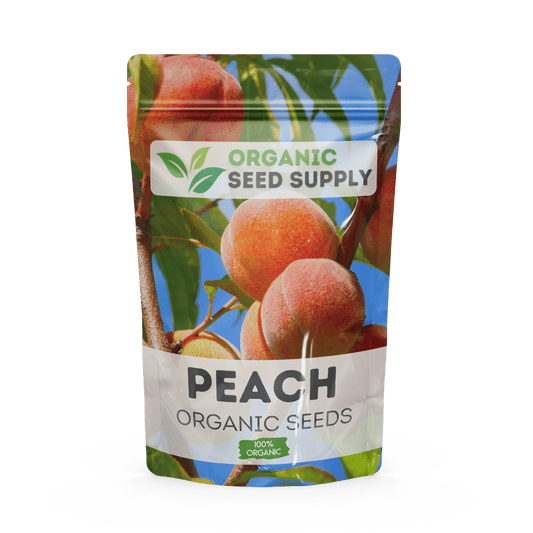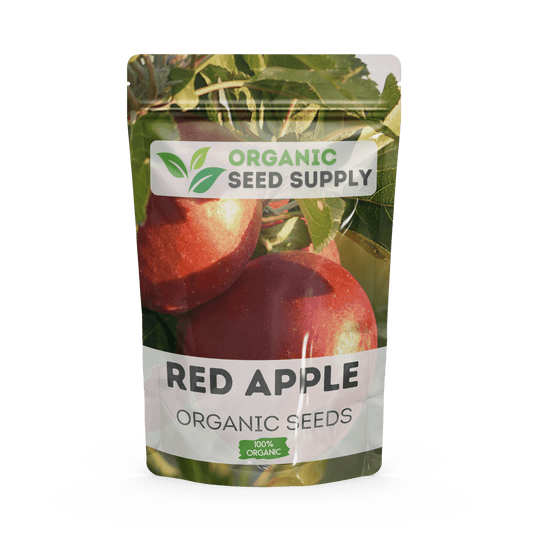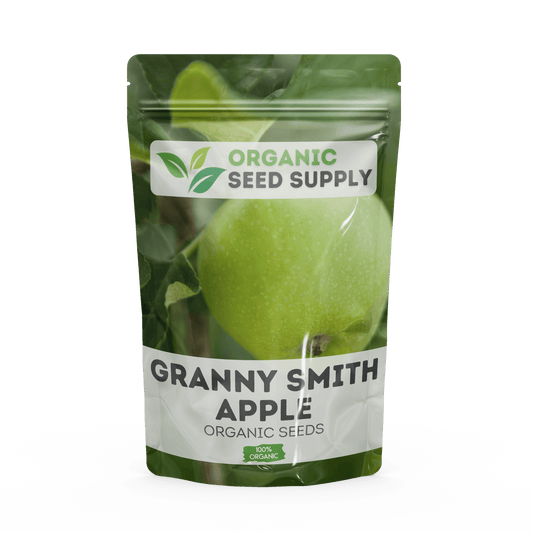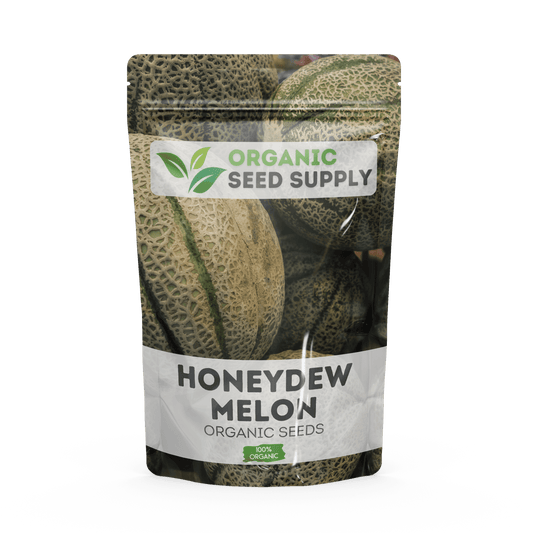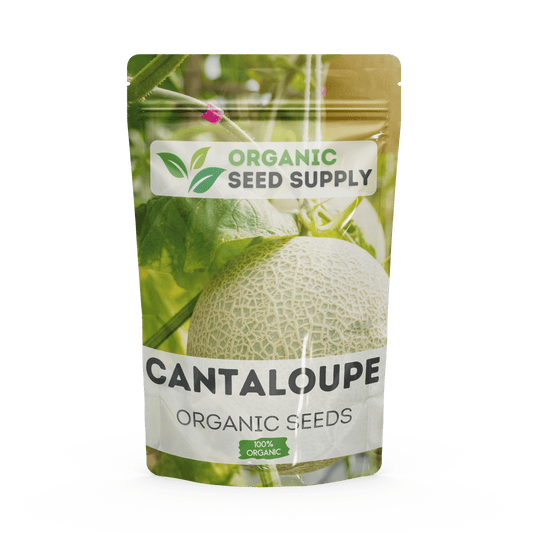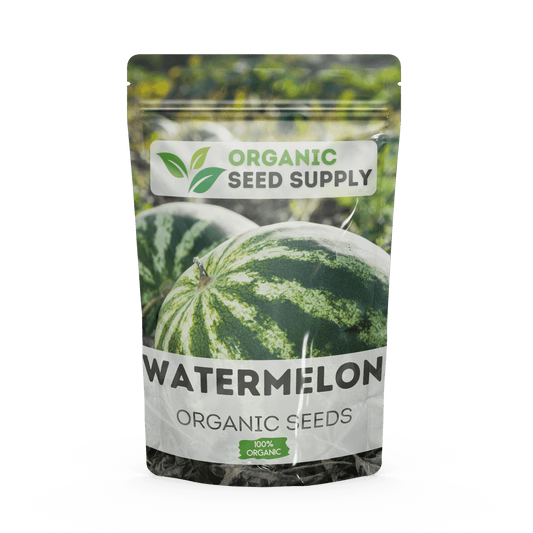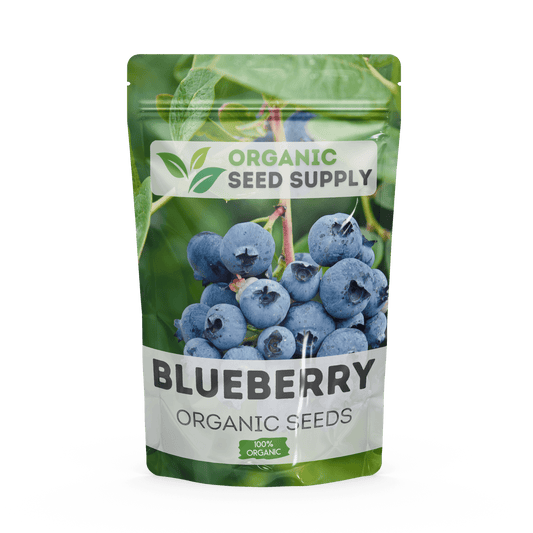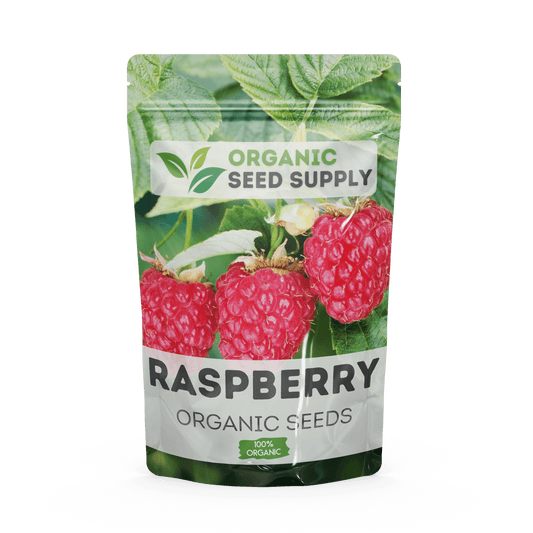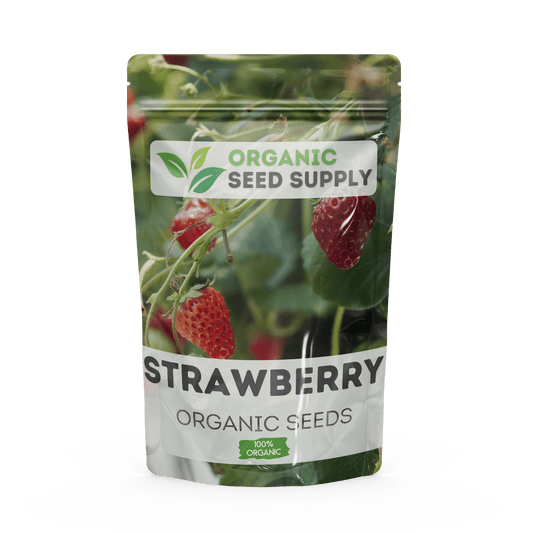-
Organic Peach Seeds
Regular price From $7.95 USDRegular priceUnit price per -
Organic Red Apple Seeds
Regular price From $7.95 USDRegular priceUnit price per -
Organic Granny Smith Apple Seeds
Regular price From $7.95 USDRegular priceUnit price per -
Organic Honeydew Melon Seeds
Regular price From $7.95 USDRegular priceUnit price per -
Organic Cantaloupe Seeds
Regular price From $7.95 USDRegular priceUnit price per -
Organic Watermelon Seeds
Regular price From $7.95 USDRegular priceUnit price per -
Organic Blueberry Seeds
Regular price From $7.95 USDRegular priceUnit price per -
Organic Raspberry Seeds
Regular price From $7.95 USDRegular priceUnit price per -
Organic Strawberry Seeds
Regular price From $7.95 USDRegular priceUnit price per
Shop Organic Fruit Seeds
Organic fruit seeds come from plants that have been cultivated without the use of synthetic pesticides, fertilizers, or genetically modified organisms.
This method of farming supports a healthier ecosystem by reducing pollution and conserving water and soil.
Gardeners who choose organic seeds for their home gardens are making a commitment to contribute positively to the environment while enjoying the taste and nutritional benefits of home-grown fruit!
Benefits of Organic Fruit Seeds
Organic fruit seeds come with a host of advantages both nutritionally and environmentally, offering a sound choice for health-conscious individuals and those looking to contribute to a more sustainable world.
Nutritional Value
Organic fruits are a powerhouse of nutrients, often packed with essential vitamins, minerals, and micronutrients. Organic foods also typically have fewer pesticide residues compared to other produce.
Environmental Impact
One of the standout benefits of choosing organic fruit seeds is the positive impact on the environment. Organic seeds signify that the fruits have been grown without synthetic pesticides and genetically modified organisms (GMOs), ensuring that the plants contribute to ecological balance.
By selecting organic seeds, you support farming practices that minimize soil depletion and protect water quality, promoting a healthier ecosystem!
Types of Organic Fruit Seeds
Organic farming enthusiasts have a plethora of seed options to choose from. These seeds ensure that the fruits grown are free from synthetic pesticides and fertilizers.
Berry Seeds
Strawberries, blackberries, and blueberries are among the popular berry seeds one can plant in their organic garden. These seeds can yield sweet and nutritious berries that are ideal for fresh eating, preserves, or baking.
Citrus Seeds
Citrus seeds include varieties such as oranges, lemons, and limes. These seeds typically require a warm climate or a greenhouse setting. Citrus fruits are known for their vitamin C content and refreshing flavors.
Stone Fruit Seeds
Peaches, plums, and cherries represent stone fruit seeds. These seeds grow best in temperate climates and can produce fruits with juicy flesh surrounding a hard pit or 'stone.'
Tropical Fruit Seeds
Lastly, tropical fruit seeds, which range from papayas to mangoes, need a warm, frost-free climate. These exotic seeds can bring a taste of the tropics to suitable home gardens.
Frequently Asked Questions
How can I ensure the seeds I buy are truly organic?
One can ensure the seeds they purchase are truly organic by looking for a certification label from a recognized organic certifying body. This guarantees that the seeds have been produced following strict organic standards.
Are there specific benefits to planting organic fruit seeds?
Planting organic fruit seeds benefits the environment by avoiding the use of synthetic fertilizers and pesticides. They also help maintain biodiversity and soil health.
What are the differences between heirloom and organic seeds?
Heirloom seeds are varieties that have been passed down through generations, while organic seeds are produced under organic farming conditions without synthetic inputs. A seed can be both heirloom and organic if it meets these criteria.
How do I verify if the organic fruit seeds I purchase are non-GMO?
To verify if the organic fruit seeds are non-GMO, one can check for the Non-GMO Project Verified seal or other trusted non-GMO certifications on the packaging.
Our Organic Promise
For seeds to be marketed as organic, they must adhere to specific regulations and standards set by certifying bodies. These standards ensure the organic integrity of the seeds from cultivation to consumer.
The USDA Certified Organic label on our products indicate that the seeds have been produced through approved methods that integrate cultural, biological, and mechanical practices such as:
- No synthetic fertilizers and pesticides
- Soil and crop rotation practices
- Detailed record-keeping
We do these things to ensure compliance with the USDA organic regulations.

